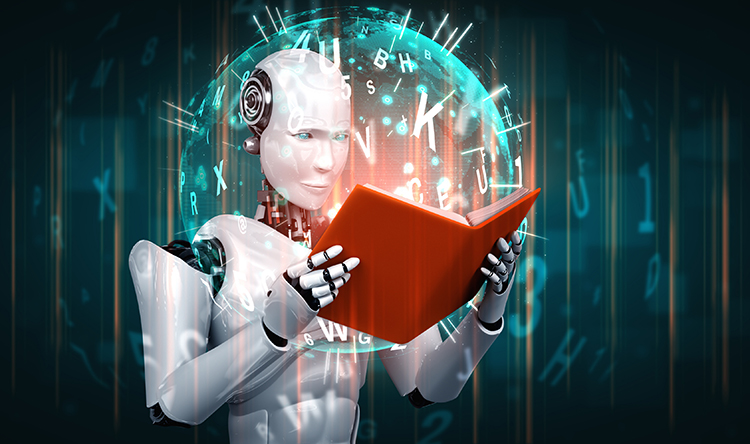Artificial Intelligence (AI) is no longer a concept of the future; it's a present-day reality reshaping industries and job markets globally. From automating mundane tasks to creating entirely new job categories, AI's influence is profound and far-reaching. For individuals exploring a career in AI, understanding these changes is crucial to navigating and succeeding in this evolving landscape.
The Dual Impact of AI on Employment
AI's integration into various sectors brings both opportunities and challenges:
- Job Displacement: Roles involving repetitive and routine tasks are increasingly automated. For instance, customer service positions are being supplemented or replaced by AI-driven chatbots and virtual assistants.
- Job Creation: Conversely, AI is generating new roles that require human oversight, creativity, and strategic thinking. Positions such as AI ethicists, data scientists, and machine learning engineers are in high demand.
According to a report by McKinsey & Company, AI is expected to create 20-50 million new jobs globally by 2030.
Emerging Career Opportunities in AI
The rise of AI has led to the emergence of various new career paths:
- Machine Learning Engineers: Professionals who design and implement machine learning models.
- Data Scientists: Experts who analyze complex data to derive actionable insights.
- AI Product Managers: Individuals who oversee the development and deployment of AI-based products.
- AI Ethicists: Specialists who ensure AI systems are developed and used responsibly.
- Robotics Engineers: Engineers who design and build robotic systems integrated with AI.
These roles are not only intellectually stimulating but also offer competitive salaries and growth potential.
Industries Transformed by AI
AI's impact spans multiple industries:
- Healthcare: AI assists in diagnostics, personalized treatment plans, and predictive analytics.
- Finance: AI algorithms detect fraudulent activities and manage risk assessments.
- Manufacturing: Automation and predictive maintenance powered by AI enhance efficiency.
- Retail: AI personalizes customer experiences and optimizes inventory management.
- Education: AI facilitates personalized learning and automates administrative tasks.
Skills Required for a Career in AI
Pursuing a career in AI necessitates a blend of technical and soft skills:
- Technical Skills:
- Proficiency in programming languages like Python or R.
- Understanding of machine learning algorithms and data structures.
- Experience with AI frameworks such as TensorFlow or PyTorch.
- Soft Skills:
- Critical thinking and problem-solving abilities.
- Effective communication to convey complex ideas.
- Ethical reasoning to address AI's societal impacts.
Educational Pathways and Training
Embarking on a career in AI can follow various educational routes:
- Formal Education: Degrees in computer science, data science, or related fields.
- Online Courses and Certifications: Platforms like Coursera, edX, and Udacity offer AI-focused programs.
- Bootcamps and Workshops: Intensive training programs provide hands-on experience.
- Self-Learning: Utilizing open-source resources and participating in AI communities.
Technokraft Solutions in Nashik offers comprehensive courses in Data Science, Business Analytics, and SAP, providing practical knowledge and industry-relevant skills.
The Future Outlook
The future of AI in the job market is promising, with continuous advancements leading to new opportunities. As AI becomes more integrated into daily operations, the demand for skilled professionals will rise. Staying updated with the latest trends and continuously upgrading skills will be key to thriving in this dynamic field.
Frequently Asked Questions (FAQs)
- What is the future of AI in the job market?
- AI is expected to create numerous job opportunities while transforming existing roles, emphasizing the need for continuous learning and adaptability.
- How can I start a career in AI?
- Begin by acquiring foundational knowledge through courses or degrees in relevant fields, and gain practical experience through projects or internships.
- Are AI jobs in demand?
- Yes, there's a growing demand for AI professionals across various industries, including healthcare, finance, and technology.
- What skills are essential for AI careers?
- Key skills include programming, data analysis, machine learning, and strong problem-solving abilities.
- Do I need a degree to work in AI?
- While a degree can be beneficial, many employers value practical skills and experience, which can be gained through certifications and self-learning.
- What industries are hiring AI professionals?
- Industries such as healthcare, finance, manufacturing, and retail are actively seeking AI talent.
- How does AI affect existing jobs?
- AI automates routine tasks, allowing professionals to focus on more strategic and creative aspects of their roles.
- Is AI a good career choice?
- Yes, AI offers diverse opportunities, competitive salaries, and the chance to work on cutting-edge technologies.
- What are the challenges in AI careers?
- Challenges include keeping up with rapid technological changes and addressing ethical considerations in AI applications.
- Where can I learn more about AI careers?
- Educational institutions like Technokraft Solutions provide courses and guidance for aspiring AI professionals.
Conclusion
Artificial Intelligence is undeniably revolutionizing the job market, presenting both challenges and opportunities. For those considering a career in AI, now is the time to acquire relevant skills and knowledge. Embracing continuous learning and staying abreast of industry trends will be crucial in navigating this transformative era.
Ready to embark on your AI career journey?
Contact Technokraft Solutions at 8446203167 or visit https://ttsnasik.com/contact to explore courses and receive personalized career counseling.
